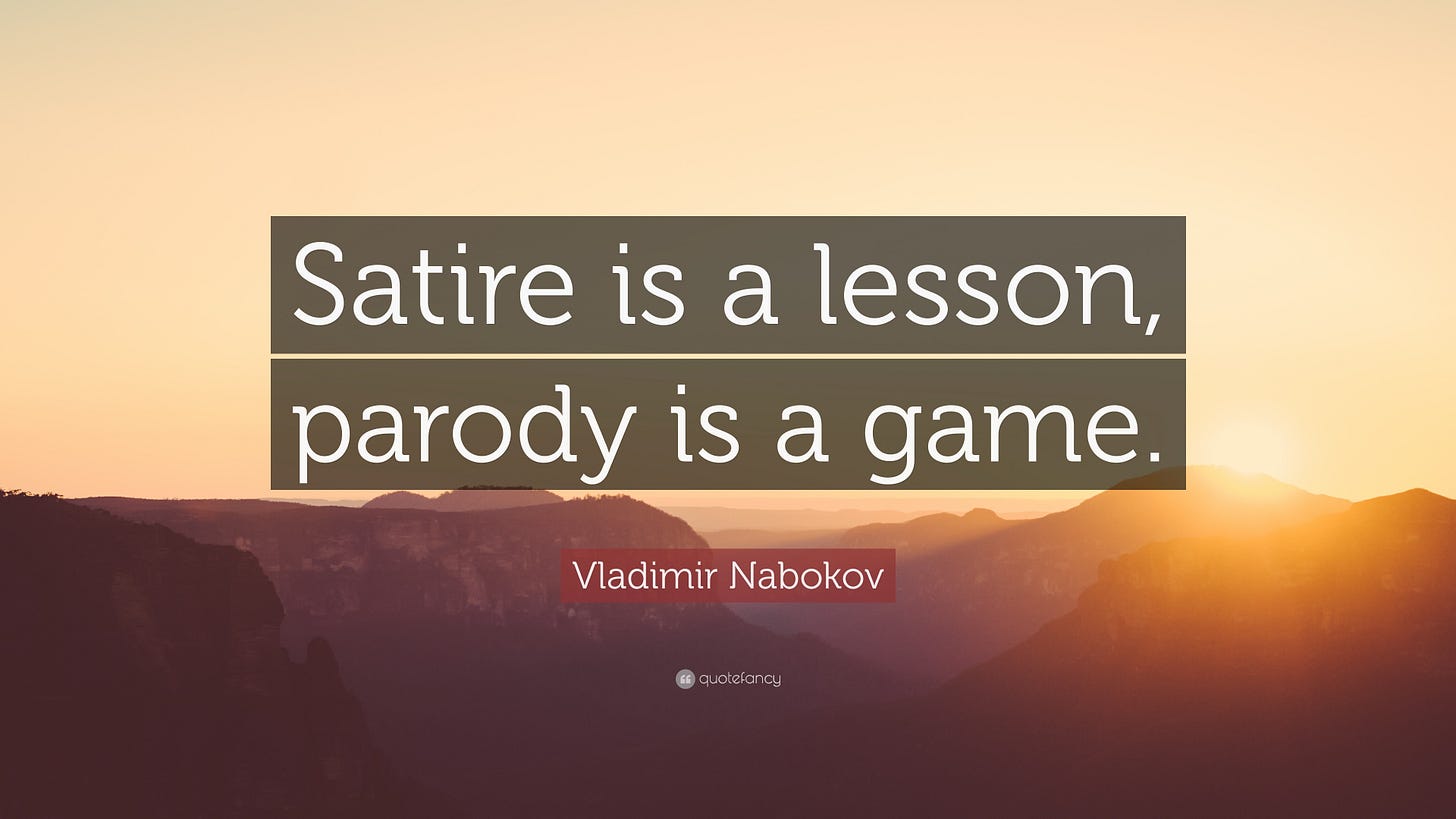A Guide to Writing Satire and Parody
Welcome to the world of satire and parody, where humor meets critique, and nothing is quite as it seems! Whether you're a budding writer with a penchant for wit or a seasoned scribe looking to dip your toes into the playful waters of satirical writing, you've come to the right place. This guide is your all-access pass to understanding and mastering the art of satire and parody. So, grab your pen (or laptop), and let's embark on a journey filled with laughter, insight, and maybe a few too many puns.
Understanding Satire and Parody
What is Satire?
Imagine if laughter had a superpower, one that could unveil truths and poke fun at society's follies and foibles. That's satire for you! It's a genre of literature and performing arts that uses humor, irony, and exaggeration to criticize or comment on people, politics, or society.
What is Parody?
Parody, on the other hand, is like satire's mischievous sibling. It imitates the style of a particular genre, work, or artist in such a way that it becomes funny. It's not just about poking fun; it's a homage with a hilarious twist.
The Ingredients of Successful Satire
Humor
The first ingredient, and arguably the most important, is humor. But not just any humor – we're talking smart, witty, and often subtle humor that makes people think even as they laugh.
Criticism
Next up, criticism. Satire isn't just about making jokes; it's about making a point. The best satire has a message, and a target of its critique, whether it's societal norms, political policies, or human behavior.
Subtlety
Finally, subtlety is key. The art of satire lies in its ability to wrap criticism in humor so that it's engaging, not off-putting. It's like hiding vegetables in a cake; it's there, but in a form that's palatable and even enjoyable.
Crafting a Parody Masterpiece
Mimicry with a Twist
To craft a parody, start by mimicking your target as closely as possible... then twist! Add unexpected elements, exaggerate characteristics, or flip the script entirely.
The Element of Surprise
The best parodies keep the audience guessing. Use the element of surprise to your advantage by leading your audience down a familiar path, only to divert them somewhere entirely unexpected.
Navigating the Fine Line
Ethics and Sensitivity
Remember, satire and parody are sharp tools, and they must be wielded with care. Be mindful of the impact your words may have, and strive to punch up, not down.
Legal Considerations
And, of course, be aware of legal considerations. Parody enjoys a protected status under copyright law, but there's a fine line between homage and infringement. Do your homework!
Tips and Tricks for Aspiring Satirists
Read Widely: The more you read, the better your satirical sense will become.
Practice Makes Perfect: Experiment with different styles and targets.
Stay Informed: The best satire is timely and relevant.
Know Your Audience: Tailor your humor to those who will appreciate it.
Examples to Inspire
Looking for inspiration? Check out the works of Jonathan Swift, Mark Twain, or more contemporary satirists like “The Babylon Bee” and "The Onion." Notice how they balance humor with critique, and don't be afraid to borrow a page from their book (figuratively speaking).
Conclusion
Satire and parody are not just about making people laugh; they're about making people think. By mastering these genres, you can offer a mirror to society, reflecting its absurdities and encouraging self-reflection. So go forth, wield your wit wisely, and remember: the pen (or keyboard) is mightier than the sword, especially when it comes with a side of humor.
FAQs
1. Can satire or parody be too harsh? Yes, it's important to strike a balance between critique and respect. Satire should challenge and entertain, not alienate.
2. How do I know if my satire is effective? If it makes people laugh while making them think, you're on the right track.
3. Do I need to be an expert on a subject to satirize it? Not necessarily, but a good understanding of the subject matter can add depth to your satire.
4. Can satire change minds? Absolutely! Satire has a long history of influencing public opinion and sparking conversations.
5. How can I avoid legal issues when creating parody? Ensure your work is transformative and offers clear commentary or critique. When in doubt, consult a legal expert.
Remember, satire and parody are not just genres; they're powerful tools for change. So use them wisely, and let your creativity shine!




